Fritextsökning
Artiklar per år
Innehållstyper
-

The International Vaccine Institute’s office in Sweden is expanding
The International Vaccine Institute’s Stockholm office has been open for over a year. During the past year, training programmes and projects have been launched, says Anh Wartel, Head of the office.
-

Business Sweden: “Companies have a lot to offer in data-driven precision medicine”
Data-driven precision medicine can potentially solve major healthcare problems, states Business Sweden in a new report on the subject.
-
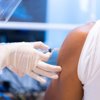
Study: Vaccination linked to lower risk of post-COVID
The risk of developing post-COVID after a COVID infection was reduced in vaccinated people, according to a new study from the University of Gothenburg.
-

High biological age is linked to a higher risk of dementia and stroke
It is a well-known fact that people age at different rates, and a recent study at the Karolinska Institute suggests that people with a biological age higher than their actual age are significantly more likely to suffer from dementia and stroke.
-

Founder of Bioarctic, Lars Lannfelt, is honoured: “I want to create something for the future”
It´s like a scientist’s dream: to be the world’s first with a drug that genuinely affects one of our major diseases. Lars Lannfelt and his company Bioarctic have achieved just that, and they are thus making a significant contribution to the history of Swedish medicine. He is now being awarded the Research!Sweden Award 2023.
-

High-tech companies are increasingly focusing on health
Tech companies have been taking an interest in healthcare for many years, and this interest seems to be increasing. “It’s not a sudden shift in trend, it’s more about them advancing their positions,” says Anna Lefevre Skjöldebrand, CEO of Swedish Medtech.
-

The first drugs to slow down Alzheimer’s – but what does it mean for patients?
New treatments for early Alzheimer’s are bringing hope to thousands of patients and their families. The question is, who will get the treatment, how will the right patients be found in time, and will the healthcare system’s resources be sufficient? Life Science Sweden has spoken to Swedish researchers in Alzheimer’s who voice cautious hope but also see further challenges.
-
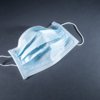
Pfizer’s Paxlovid is being tested against post-COVID in a major Swedish study
In a new study conducted at the Karolinska University Hospital, Pfizer’s COVID drug, Paxlovid, is now being tested in patients with post-COVID. The study is one of the most extensive studies in the world currently being conducted for a drug for post-COVID.
-
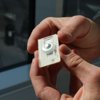
From the sea of Åland to a self-test for lithium
Four years ago, a meeting on the sea of Åland resulted in the development of a self-test for lithium levels in the blood. The hopes are that the test will be available for individuals with bipolar disorder in the future.
-

Why the world renown researcher Marc Tessier-Lavigne resigns as Stanford´s president
In mid-summer, neuroscientist Marc Tessier-Lavigne announced his resignation as President of Stanford following allegations of manipulated study data. According to the reporter Theo Baker, who first reported the story, Tessier-Lavigne “rewarded the winners and punished the losers”. Here is the background of the story which has shaken the American scientific community over the summer.
-

Neanderthal gene variants may cause Viking disease
A new study suggests that the so-called Viking disease, which affects the hand function in many older people, may be linked to gene variants inherited from Neanderthals.
-

Rapid developments in AI – “All stakeholders are struggling to understand it”
Artificial intelligence is being discussed more and more, and developments in the field are moving rapidly. As the Swedish Medical Products Agency testifies, keeping up with developments is not easy.
-
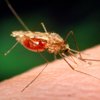
A new malaria vaccine offers hope but much more research is still needed
There has long been no vaccine against malaria, but there have been breakthroughs in recent years. However, it is still unclear how we become immune to the malaria parasite, and this is a vital piece of the puzzle for creating effective vaccines, says malaria researcher Kristina Persson.
-

New diagnostic rules raise concerns
In a panel discussion, several voices from academia and the industry expressed concerns about the transition to the new regulatory framework for in-vitro diagnostics (IVDR). They argue that it may create significant differences between regions, and patients may be affected.
-
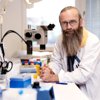
Conference on Alzheimer’s reveals several advances in the field
In Gothenburg, Sweden, researchers and pharmaceutical companies from all over the world gathered to discuss one specific issue – neurological diseases. Life Science Sweden has talked to some of those that attended the conference.
-

Meeting with focus on South Korea and Japan’s life sciences
Large, complex and exciting – this is how Britta Stenson, Business Sweden, describes the life science markets of Japan and South Korea, which took centre stage during a webcast seminar.
-
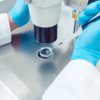
Major advances in IVF labs in the last few decades
Since the introduction of in vitro fertilisation several decades ago, many developments have been made in the field, and the main part of that development has taken place in the lab.
-

The Swedish National Board of Health and Welfare rejects prioritising andrology as a speciality
Male infertility can be linked to a shorter lifespan and several severe diseases, but when couples who want children are examined, the focus is on the woman. Experts in the field claim that andrology needs to become a speciality in Sweden to increase awareness and knowledge. But the Swedish National Board of Health and Welfare says that it is not a priority.
-

“An entire industry is about to be wiped out”
According to Jennie Ekbeck, CEO of Umeå Biotech Incubators, Sweden risks not having any small diagnostic companies left in five years.
-

How critical are the “Spermageddon” reports? – Researchers call for action
A much talked about meta-study indicates that sperm concentration in men’s seminal fluid has halved in 40 years. Experts in andrology that Life Science Sweden speaks to believe that the results must be taken seriously, and call for action from the Swedish authorities.
-

Individual DNA passport could result in fewer drug side effects
You may be required to show a DNA passport when you pick up medicines at the pharmacy in the future. According to a new study, patients might suffer 30% fewer side effects if the drug treatment is adapted to their genes.
-

He saved lives with his theories – was ostracised and ended up in a mental hospital
Hungarian doctor Ignaz Semmelweis (1818-1865) undoubtedly possessed plenty of persistence, diligence and sound reasoning skills – but he was hardly blessed with luck and timing.
-

"Unclear proposal from the EU Commission on how to solve the MDR challenges"
Even before the EU regulation on medical devices (MDR) came into force, medical technology companies and doctors were concerned that it would endanger the availability of medical devices in the EU. Unfortunately, the fears have come true.